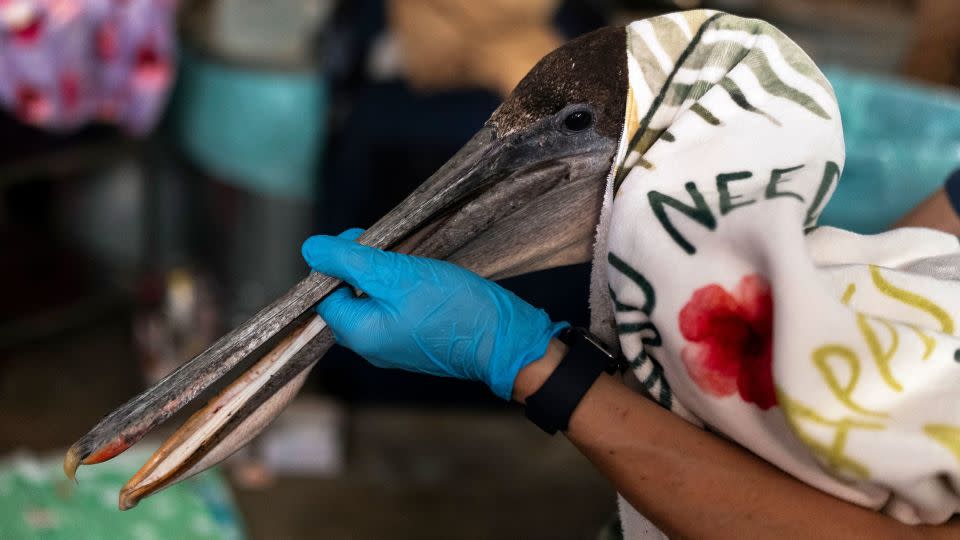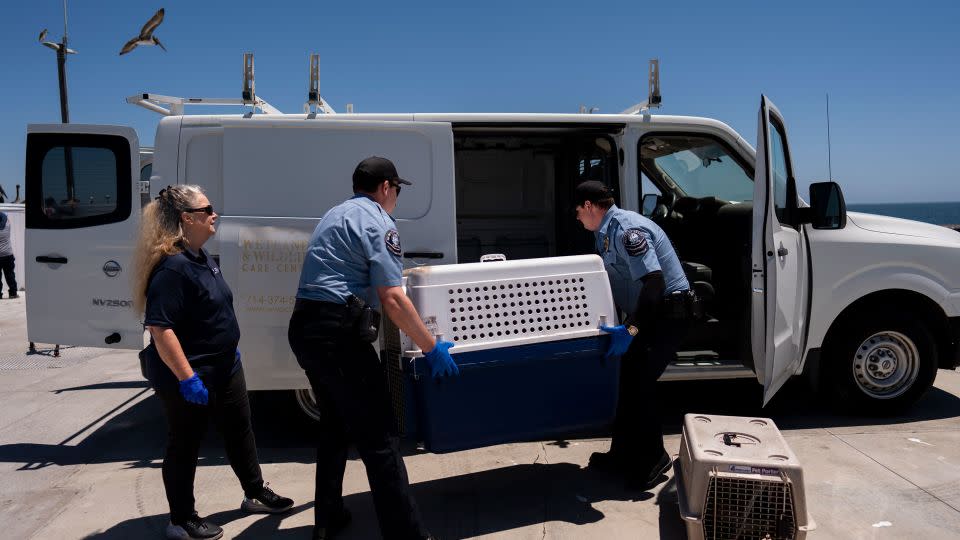Hundreds of pelicans have been stranded on the California coast for the second time in 2 years
Droves of starving brown pelicans have been found stranded on the California coast since late April and the root cause of the event remains a mystery, wildlife watchers say.
Arriving dehydrated, starved and injured from fishing lines and hooks, the pelicans are mostly turning up in the Monterey and Santa Cruz areas in Northern California, International Bird Rescue, a nonprofit conservation organization, said on its website.
They’re also popping up in “odd spots” in Southern California, including a lake at Inglewood’s SoFi Stadium and a fire station in Malibu, the group said
The California Department of Fish and Wildlife is “performing postmortem examinations on brown pelicans sent to our laboratories in Sacramento and Santa Cruz. Preliminary findings indicate emaciation as the primary issue contributing to this stranding event,” department spokesperson Tim Daly told CNN in a statement.

International Bird Rescue reported more than 260 brown pelicans – a once endangered species – have arrived at the organization’s California treatment centers since April 20.
“Diagnostic testing has not revealed any evidence of diseases such as bird flu that may be causing these strandings. Bird Rescue’s staff and volunteers are working tirelessly to provide the affected birds with the best care they desperately need to recover and return to the wild,” the group said on its website.

The nonprofit said Friday they’re overwhelmed with public donations of surgical tape, syringes, pet hair blow-dryers, waterfowl food, rubber floor mats, gloves and more. Still needed are donations for the cost of fish to feed the pelican patients.
The seabirds have displayed this behavior before – almost exactly two years ago – in the same areas. And the recovery effort is expensive.
In May 2022, the crisis cost the rescue group $45 per day for food, medicine and staff and $2,000 in fish, it said. Before 2022, the last great influx of brown pelicans to International Bird Rescue was in 2012.
Two years ago, testing also showed symptoms of starvation in the nearly 800 pelicans that arrived in rehabilitation centers.
“In Spring 2022, the precise factors that contributed to reduced prey intake by the pelicans was not determined although scientists concluded the pelicans likely had difficulty reaching prey fish in the ocean as they normally would,” Daly’s statement said. “In 2022 and in this current event, strong storm systems occurred in the southern California region in the spring preceding the events, and it’s possible these conditions impacted the pelican’s ability to access prey fish under the water’s surface.”
For more CNN news and newsletters create an account at CNN.com


